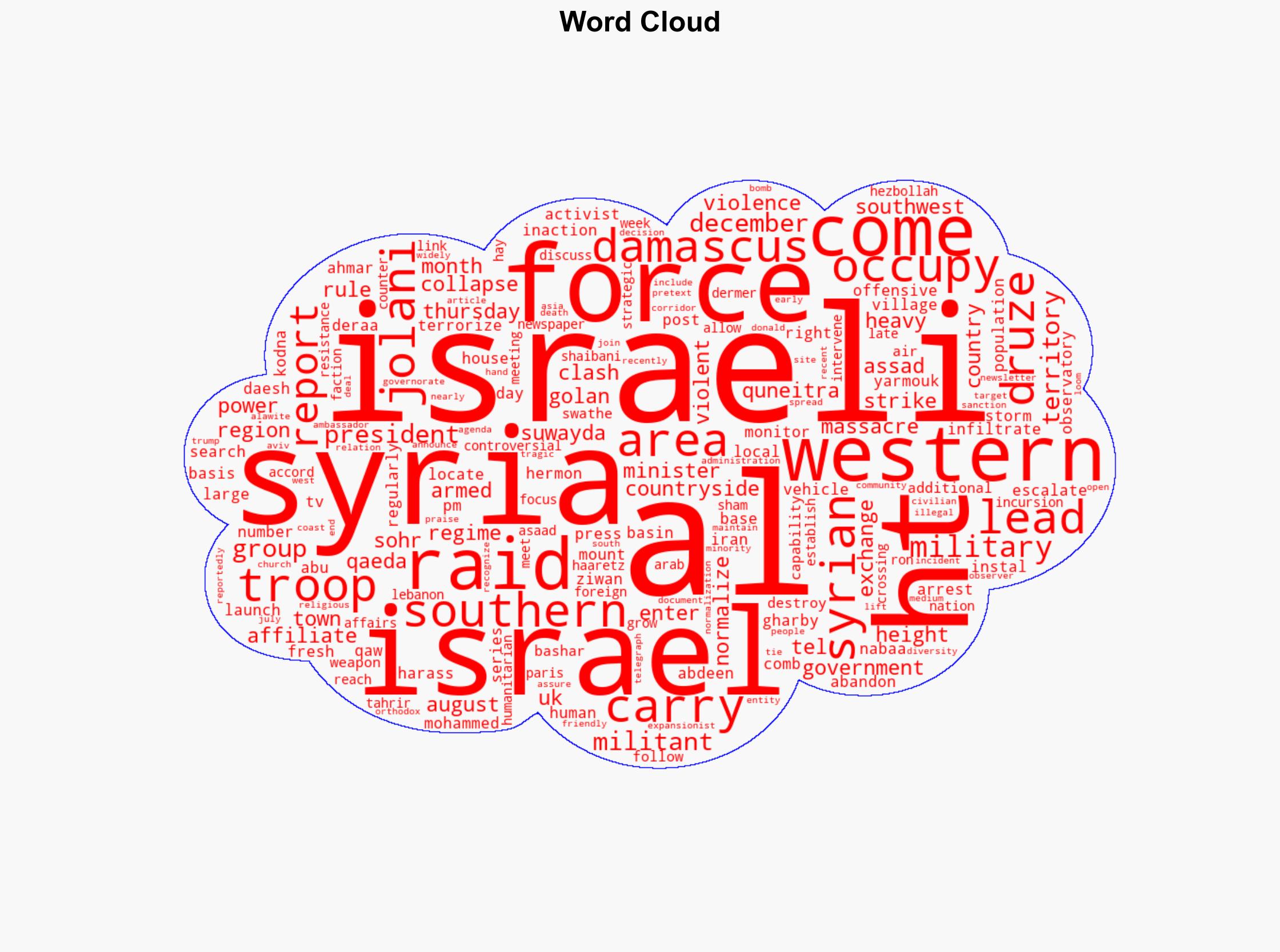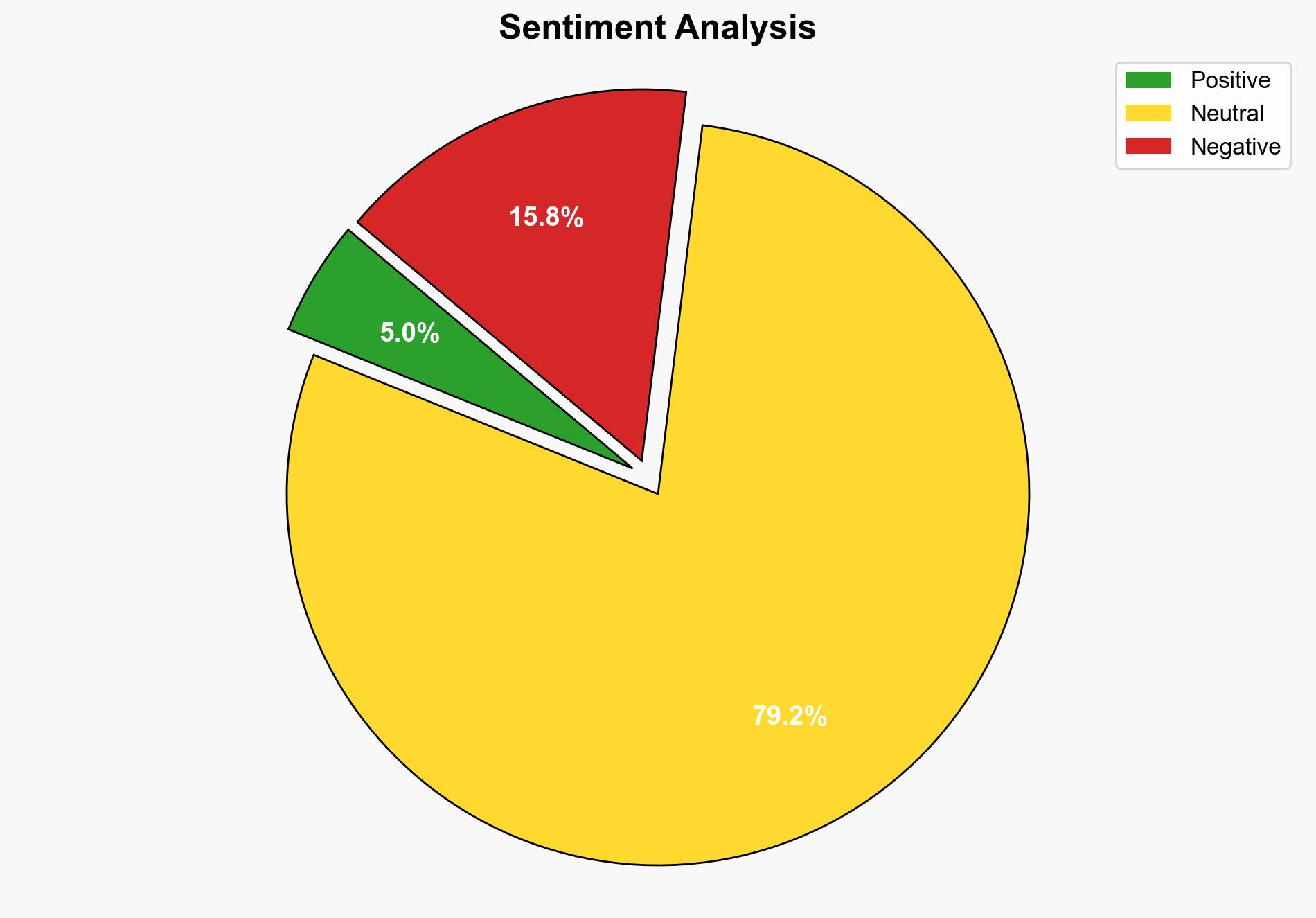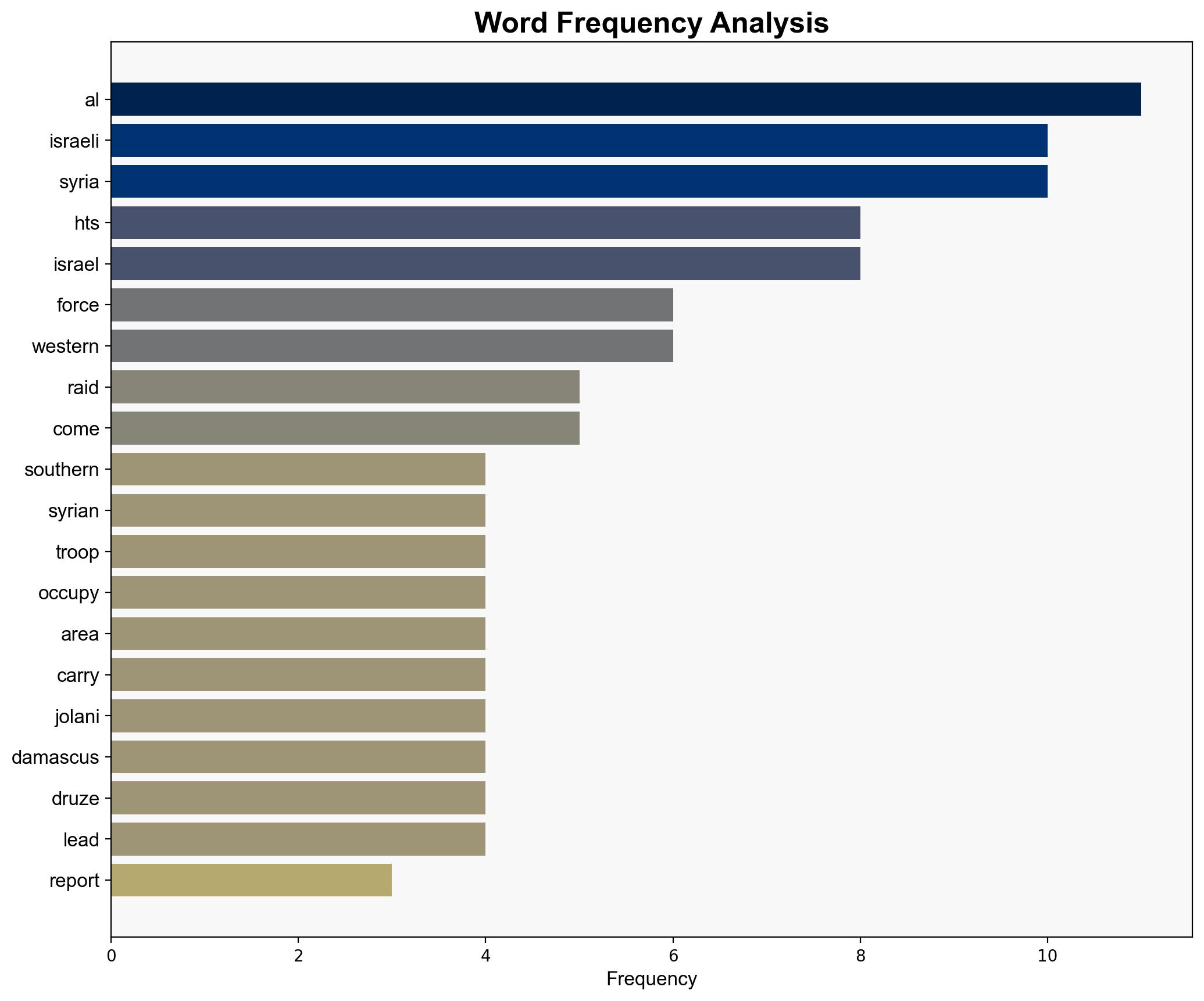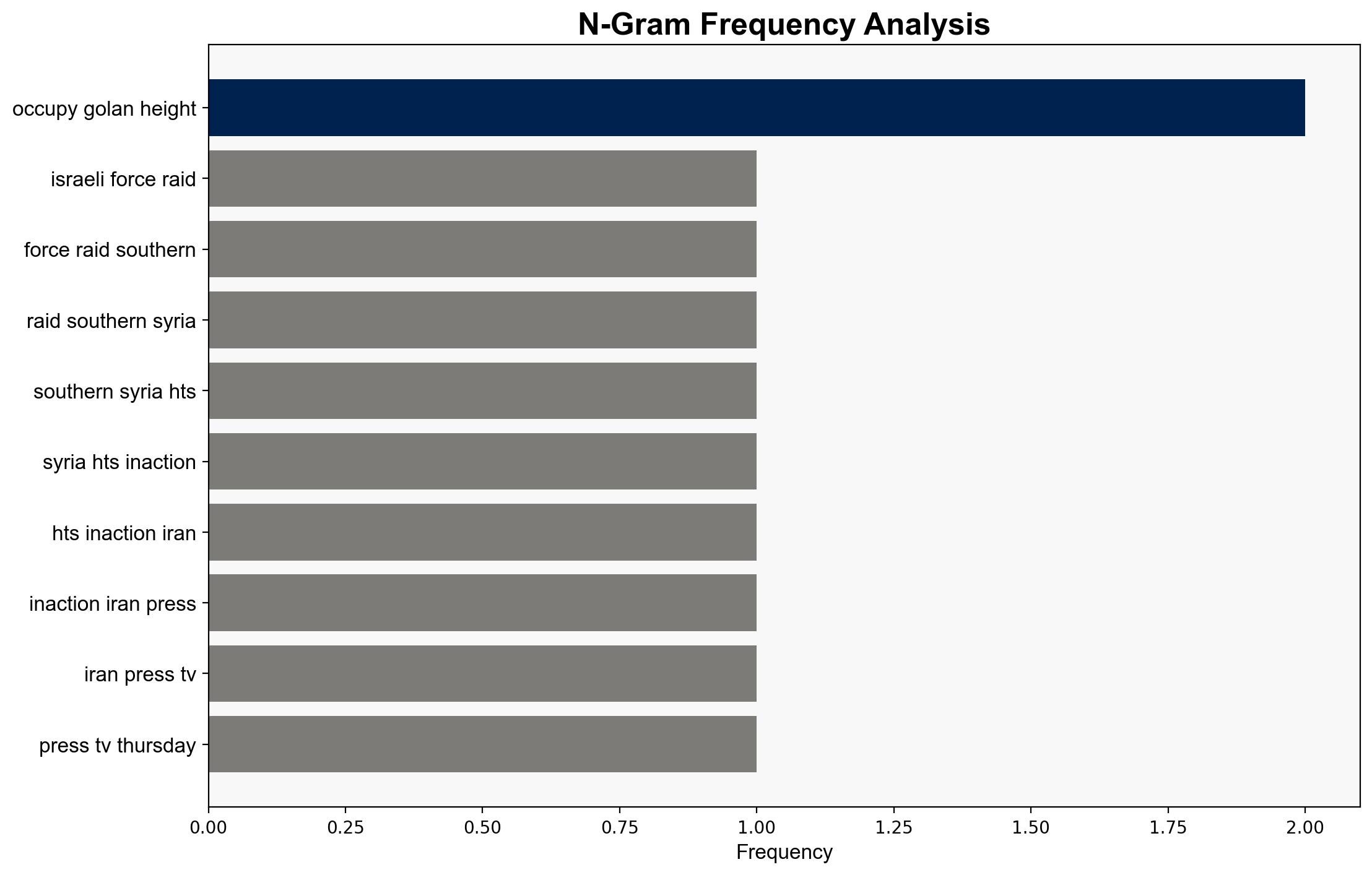Israeli forces keep raiding southern Syria amid HTS inaction – Globalsecurity.org
Published on: 2025-08-22
Intelligence Report: Israeli forces keep raiding southern Syria amid HTS inaction – Globalsecurity.org
1. BLUF (Bottom Line Up Front)
The most supported hypothesis is that Israeli raids in southern Syria are primarily aimed at countering Iranian influence and Hezbollah’s presence, with a secondary objective of pressuring HTS to align with Israeli strategic interests. Confidence level: Moderate. Recommended action: Monitor developments for shifts in HTS alignment and potential escalation involving Iranian proxies.
2. Competing Hypotheses
1. **Hypothesis 1**: Israeli forces are conducting raids in southern Syria to counter Iranian influence and Hezbollah’s military presence, using HTS inaction as a strategic opportunity.
2. **Hypothesis 2**: The raids are part of a broader strategy to pressure HTS into normalizing relations with Israel, leveraging the group’s need for Western support and legitimacy.
Using ACH 2.0, Hypothesis 1 is better supported by the historical context of Israeli operations targeting Iranian and Hezbollah interests in Syria. Hypothesis 2 is plausible but less supported due to the complexity of HTS’s ideological stance and regional dynamics.
3. Key Assumptions and Red Flags
– **Assumptions**: Israeli operations are primarily driven by security concerns related to Iran and Hezbollah. HTS’s inaction is strategic rather than a sign of weakness.
– **Red Flags**: Lack of direct evidence linking HTS’s inaction to Israeli diplomatic efforts. Potential bias in sources reporting on HTS’s intentions and capabilities.
– **Blind Spots**: The internal dynamics within HTS and their potential shifts in strategy or alliances.
4. Implications and Strategic Risks
– **Geopolitical Risks**: Escalation of Israeli-Iranian tensions in Syria could destabilize the region further.
– **Cascading Threats**: Increased Israeli operations may provoke retaliatory actions from Iranian proxies, affecting regional security.
– **Psychological Dimensions**: The perception of Israeli actions as aggressive could influence local and international public opinion, impacting diplomatic relations.
5. Recommendations and Outlook
- Enhance intelligence collection on HTS’s internal decision-making processes to better understand potential shifts in alignment.
- Engage in diplomatic efforts to de-escalate tensions between Israel and Iranian proxies to prevent broader conflict.
- Scenario Projections:
- Best Case: HTS aligns with Israeli interests, reducing regional tensions.
- Worst Case: Escalation leads to broader conflict involving multiple regional actors.
- Most Likely: Continued Israeli operations with limited HTS response, maintaining status quo.
6. Key Individuals and Entities
– Abu Mohammed al-Jolani
– Asaad al-Shaibani
– Ron Dermer
7. Thematic Tags
national security threats, counter-terrorism, regional focus





